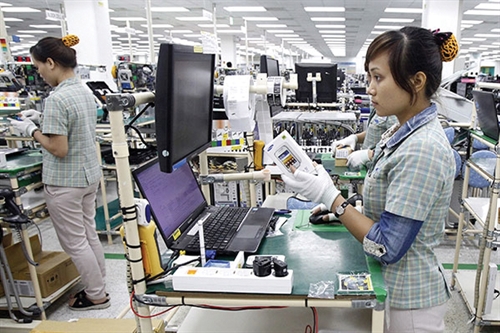Vietnam’s workers cash out pensions early ahead of new law
Vietnam is amending its pension laws in an attempt to deter people from abandoning the fund before retirement. Yet in some quarters, the pending change is having the opposite effect.
Many workers critical to the world’s electronics and clothing supply chains were already taking early payouts to deal with hardships, such as those brought on by the pandemic. Now, more of them are getting jittery after hearing the upcoming law could cut payouts in half, and the communist country is weighing ways to keep workers in the system, from TikTok campaigns to legal incentives.
“Early withdrawal is still a heated issue,” Tu Phuong Nguyen, a University of Melbourne lecturer in Asian Studies, told Nikkei Asia. “Many workers in the past year resigned from their jobs so that they are able to claim the lump sum ahead of the time the new law comes into effect.”
Employees can’t collect the lump sum until they’ve been out of work for 12 months, so some are quitting before the law is expected to take effect in 2025. This is pushing more people into precarity, Nguyen said, as they’d rather get the emergency funds now while doing gig work and other odd jobs rather than risk getting a smaller payout after 2025.
Officials worry that many in the factory export-driven economy’s labor force are sacrificing tomorrow’s safety net for today’s emergency. They are also concerned about keeping social insurance funded. The proposal to cut one-time payments in half is meant to discourage such payments, though it is far from clear lawmakers will approve the proposal. People have responded to the uncertainty by queuing overnight at social security offices to cash out early, local media has reported.
In the first half of last year, 665,000 workers pulled out of the retirement fund, according to parliament. Its data shows this is twice the average in previous years.
“This is a very worrying number,” National Assembly member Nguyen Thi Viet Nga wrote in an analysis on the assembly website.
Parliament is debating revisions to the Social Insurance Law that would qualify employees for retirement benefits if they contribute for 15 years, instead of 20; broaden the net to include more people, such as those working part time or in family businesses; and increase perks for contributions higher than the minimum required.
Nga also argued for better messaging to retain workers. Thousands of cash-strapped Vietnamese are joining Facebook groups for advice on applying for early payouts. Vietnam should tap influencers and spread awareness that high pension participation is a collective good, Nga said.
“For example, make TV series on the topic of social insurance, incorporating attractive and thrilling stories,” she wrote. “Create lively, humorous short clips to upload to social networks.”
Analysts have suggested giving people loans rather than early payouts as well as increasing transparency about how the state fund is invested.
Vietnam can encourage personal savings, too, said Dominic Scriven, chairman of Dragon Capital, which sells the fast-growing Southeast Asian country’s first private pension product.
“We’re now beginning to see more interest among employers,” he said in an interview.
But he admitted uptake “has been slow” for the private pension. And it’s a “very, very valid point” that beefing up the state fund takes priority, he said.
Vietnam Social Security said it is taking “drastic measures” against companies that don’t pay into the social insurance fund, whose contributions are split between the employer and employee. It is working with police and labor unions to crack down on violators, it said.
The agency also is spreading the message that retirees wind up full of regret after leaving the state fund. They miss out on not only higher payments in their old age but also health care and survivor benefits, VSS said, recommending people apply for unemployment benefits instead of cashing out their pensions. It shared the story of Hoang Thi Lan, who took a lump sum early.
“Seeing my neighbor receive a monthly retirement allowance,” VSS quoted her as saying on its website, “I wish that I had thought twice and did not withdraw the insurance benefits all at once.”
Read more @asia.nikkei











